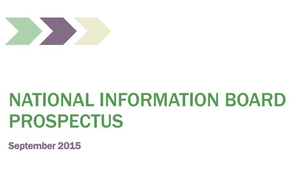How the health system is embracing digital technology
Review of progress by NIB shows steps taken to use digital technology to give patients more power over their care and make health system more efficient.

NIB prospectus
The ‘NIB Prospectus’ provides an overview of progress and sets out the ‘Personalised Health and Care 2020’ commitments that are due to be delivered by March 2016.
The progress so far includes:
- in April, England became the first country to offer citizens the ability to access their GP records online and other digital services in primary care. In the first quarter of this year, more than 3.7 million repeat prescriptions were ordered online
- more than 96% of people registered with a GP now have a summary care record and 73% of ambulance, 85% of NHS111 and 35% of A&E services now have access to view them. This means that clinicians can treat patients more safely based on knowledge of their medication history, especially allergies and other likely adverse reactions to drugs
- MyNHS is a new digital tool that has transformed transparency of local services and allows you to compare the outcomes and effectiveness of more than 37,600 health and care organisations.
The report describes the NIB’s vision in terms of its impact for 4 specific groups: patients and citizens; healthcare professionals; innovators; and commissioners and local providers.
Work is now underway to establish a range of programmes under the following areas:
- enabling patients and citizens to make the right health and care choices
- transforming general practice
- out of hospital care and integration with social care
- acute and hospital services
- paper-free healthcare and system transactions
- data for outcomes and research
To make sure we can objectively review progress, we have invited representatives of our 3 major stakeholder groups to assess our progress to date and to recommend the indicators for measuring future success. This includes:
- working with the NHS Citizen team to launch a discussion about the role of the NIB and PHC2020 and what principles are most important to citizens
- inviting the National Quality Board (NQB) to work with us to define measures around the extent to which the changes proposed will improve quality of care
The National Information Board is committed to driving forward innovation by harnessing the skills and motivation of individuals and organisations across the health and care system to deliver benefits and improve care.
Innovation and technology should not be seen as optional extras, which add to costs. Technology must be central if we want to raise standards, improve access to and personalisation of care, manage long term conditions more effectively, prevent avoidable lifestyle disease, and make savings.